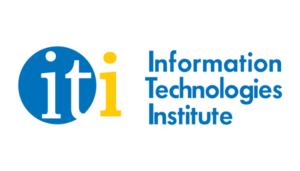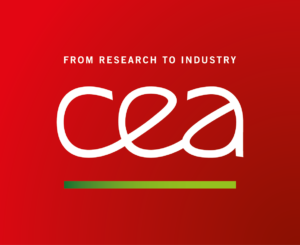Editorial Page
History of the AI Media Observatory
The Observatory was established as part of the Horizon2020 project AI4Media and builds on the expertise of more than 30 leading research and industry partners in the field of AI in media. When the project ended in August 2024, the leadership of the Observatory was taken over by KU Leuven Center for IT & IP Law (CiTiP) with support from LOBA.
In this transition, the Observatory moved to a sponsorship model and it is now financially supported by five sponsoring organisations; The Netherlands Institute for Sound & Vision, The Information Technologies Institute of CERTH (CERTH-ITI), Imagga, Université Côte d'Azur (UniCa) and The French Alternative Energies and Atomic Energy Commission (CEA).
The daily operations of the Observatory are overseen by an Editorial Board composed of founding partners from AI4Media and members from sponsoring organisations.
Editorial Board
The Editorial Board is composed by the following individuals:
- Editor-in-chief: Noémie Krack, Researcher at the Centre for IT & IP Law at KU Leuven
- Editorial oversight: Candela Bravo, European Project Consultant
- Editorial oversight: Mariana Carola, European Project Consultant
- Editor: Frédéric Precioso, Professor at Universite Cote d'Azur
- Editor: Rasa Bocyte, Senior Advisor for Research Collaboratihttps://www.loba.com/en/team/candela-bravoons at The Netherlands Institute for Sound and Vision
- Editor: Anna Schjøtt Hansen, PhD Candidate at the University of Amsterdam
- Editor: Lidia Dutkiewicz, Doctoral Researcher at the Centre for IT & IP Law at KU Leuven
- Editor: Filareti Tsalakanidou, Postdoctoral Research Associate at CERTH-IT
- Editor: Lucile Sassatelli, Full Professor at Université Côte d'Azu
- Editor: Pavel Andreev, Founder and Head of Product & Design at Imagga
- Editor: Adrian Popescu, Research Director at CEA
Sponsoring Organisations
Currently, the Observatory is supported by five organisations across Europe. If you are interested in becoming a sponsor, you can reach out to the Editorial Board. Below you can find more about the current sponsors and their mission:
- The Netherlands Institute for Sound & Vision manages one of the largest digitalized media archives in the world. Packed with (among others) radio, television, YouTube videos, objects, written press, podcasts and games. They aim to preserve the growing media collection as cultural heritage for eternity and contribute to the interpretation and experience of the importance of freedom of information and media in the broadest sense of the word.
- The Information Technologies Institute of CERTH (CERTH-ITI) is one of the leading Institutions in the fields of Informatics and Telecommunications in Greece and the EUand aims to promote innovative research for the benefit of society.CERTH-ITI lies at the forefront of basic, applied and technological research to provide solutions to society’s modern challenges, attracting significant funding from National and European competitive R&D projects as well as from private contracts.
- Imagga, is a Platform-as-a-Service providing Image recognition API that helps businesses understand and monetize image content in the cloud and on-premise. Their aim is to democratise image technologies and provide the most powerful and precise set of technologies that enable your business to derive value out of the image content it manages
- Université Côte d'Azur (UniCa) includes 17 major academic establishments around the historic university core to create one of France's top 10 research-intensive universities.
- The French Alternative Energies and Atomic Energy Commission (CEA) is a major research organisation that is proactive in its commitment to upholding the scientific, technological and industrial sovereignty of France and Europe to safely secure the present and the future.
Editorial process
- The editorial board convenes every first Thursday of the month and discusses the proposed content. You are welcome to propose content at any time between these meetings.
- At the meetings the content that will be featured on the observatory will be selected according to the editorial principles.
- In the month following the editorial meeting, the content will be ongoingly published.
Editorial principles
The AI Media Observatory publishes content that focuses on the impact of AI in the media sector. This could include but is not limited to, impacts of legislation changes, economic impacts in the sector (e.g., layoffs or investments), societal impacts (e.g., potentials of AI in battling misinformation) or social and ethical approaches to AI.
This means that academic papers with a purely technical focus are not considered relevant, but technical perspectives presented in more digestible formats and with a focus on their impact in the sector are welcomed.
All submitted content should relate to one of the following five overarching topics:
- Policy & Legislation: Content that provides insights into new policies or legislation of AI that affect the media sector.
- Social & Ethical AI: Content that addresses different approaches or principles for how to achieve socially and ethically responsible AI solutions in the media sector. This could include questions of transparency, discrimination or explainability.
- Environmental impact: Content that addresses questions of the environmental impact of AI and possible solutions to improve the carbon footprint of AI in the media sector.
- Trends & technical innovation: Content that provides insights into new AI trends or technical innovations that might both positively or negatively impact the media sector.
- Societal impacts: Content that provides insights into both the positive and negative impacts of AI in society in the context of the media sector. This could, for example, include the impact of generative AI in relation to trust in news or disinformation.
Submitters are welcome to propose content in different genres (e.g., reports, blog posts, news articles, commentaries etc.) and relating to different topics that abide by the general principle outlined above.
The AI Media Media Observatory follows the guidelines stipulated by Better Images of AI.
To propose content to be featured on the Observatory, please fill out the form.
AI4Media may use cookies to store your login data, collect statistics to optimize the website’s functionality and to perform marketing actions based on your interests. You can personalize your cookies in .






